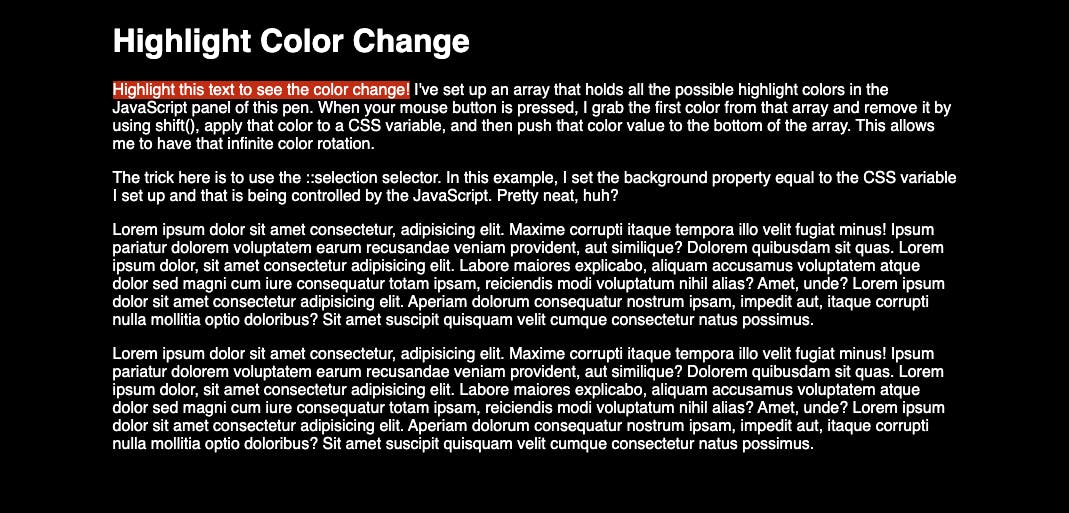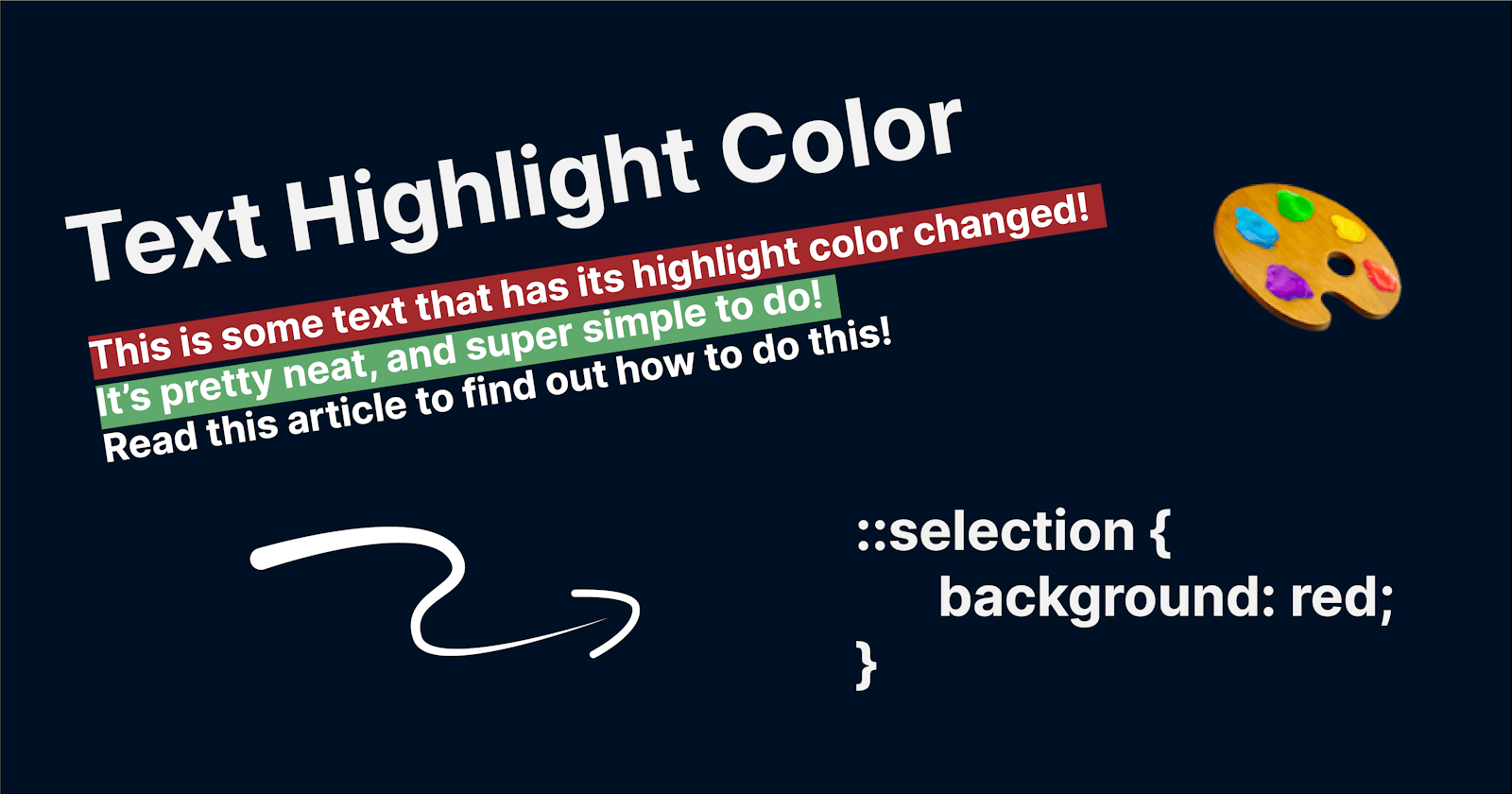I’m pretty active on CodePen. A few months ago, I posted a pen that demonstrates how to change the highlight color of text on the page. I thought it may be neat to write up a short article that will walk you through the basics, and then go a bit deeper with CSS variables.
The Basics
It’s pretty simple. To change the color of the highlighted-text, simply target the ::selection selector and then define the color of the background property.
Check out the snippet below.
::selection {
background: red;
}

Diving Deeper
Now that we know how easy it is to change the highlight color, let’s take it a step further and rotate colors by utilizing a bit of JavaScript and a single CSS variable.
First, in your JavaScript, define an array of strings - each item in the array is a hexadecimal color value.
Here’s my array:
const colors = ["#c1b001", "#a8140e", "#4315aa", "#359d09", "#8f4762"];
We want to randomly assign a color from the array to our CSS variable when the user has their mouse button down to select some text.
In order to do this, we need to create a new event listener and listen for the mousedown event.
Here’s my event listener:
window.addEventListener("mousedown", () => {
// code will go here
});
Now that we have this event set up, there’s three things we need to do:
- Grab and remove the first color from the array
- Set the CSS variable with the value we get back from the array
- Push the color variable from step 1 so it is now on the bottom of the array
This will gives us the rotating color functionality. Here’s my completed function:
window.addEventListener("mousedown", (e) => {
const color = colors.shift();
document.documentElement.style.setProperty("--highlight-color", color);
colors.push(color);
});
We’ve referenced a CSS variable named —highlight-color but have not defined it yet.
In your CSS, define the variable and initialize it to null.
:root {
--highlight-color: null;
}
Finally, target the ::selection selector and set the background property to the value in the CSS variable.
::selection {
background: var(--highlight-color);
}
And there we go! Here's the final pen - feel free to try it out!
Thanks for reading! If you liked this article and want more content like this, read some of my other articles , subscribe to my newsletter and make sure to follow me on Twitter!
